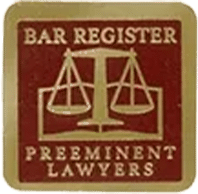
Personal injury settlements stemming from physical injuries or diseases, including any emotional distress they cause, are typically not subject to tax in Oklahoma. But as with most legal matters, there are exceptions to this rule.
If you have suffered injuries in an accident that was someone else’s fault, understanding the federal and Oklahoma tax laws surrounding personal injury settlements can help you know what to expect as you work toward the financial recovery you deserve. An experienced Oklahoma personal injury attorney can help make sure your compensation is correctly classified so you do not have unnecessary tax liabilities.

Get Your FREE & Confidential Case Review Today!
Hurt in A Slip and Fall Accident?
Contact us today for your free & confidential case review. Our team will help you get the compensation that you deserve.
Are There Any Exceptions to This Rule?
While most personal injury settlements are not subject to taxation, there are situations where a portion of your settlement might be taxable. For example, you may have previously deducted medical expenses relating to your injury from your taxes and then received a settlement. If you did, the IRS may require you to declare that portion of the settlement that covered those previously deducted medical expenses. In other words, you may need to count that amount as income for tax purposes.
The money you receive in the form of punitive damages may also be taxable. Punitive damages aim to punish the wrongdoer for their actions and deter future behavior. They cannot be classified as compensation and are subject to tax.
Is Pain and Suffering Taxable?
In most cases, any compensation you receive for the pain and suffering you have experienced due to a physical injury or disease is not taxable. This rule applies whether you receive the compensation in a lump sum or installments. However, your settlement could include compensation for pain and suffering not tied to a physical injury, such as in cases of defamation or discrimination. In that case, this portion of the settlement may be subject to local, state, and federal tax.
Is Emotional Distress Taxable?
Emotional distress often follows a physical injury. When it does, you have a right to claim financial compensation for the psychological turmoil the at-fault party has caused. Any compensation you receive for emotional distress from the injury is typically not taxable. But if your claim is based purely on emotional distress and is not from a physical injury or illness, any settlement you receive may be considered taxable income.
Can Money I Receive for Lost Wages Be Taxed?
The picture can get a bit more complicated when it comes to lost wages. The proceeds from a personal injury claim or lawsuit are generally not taxable. That includes the portion assigned as payment for lost wages resulting from a physical injury or illness. The IRS taxes income recovered in employment-related lawsuits, such as involuntary termination or unlawful discrimination. But those rules don’t apply to workers’ compensation settlements or awards.
Understanding the tax implications of recovering lost wages in a personal injury settlement can be complex. It’s best to have the support of an experienced personal injury attorney who understands the specifics of Oklahoma and federal law regarding taxation on personal injury compensation.

Get Your FREE & Confidential Case Review Today!
Hurt in A Slip and Fall Accident?
Contact us today for your free & confidential case review. Our team will help you get the compensation that you deserve.
Are Wrongful Death Settlement Payments Taxable?
Wrongful death settlements can arise from tragic circumstances where a loved one’s life is cut short due to another’s negligence. In these cases, the settlement is usually considered compensation for losses and is generally not taxable.
However, many of the same principles of personal injury settlements also apply to wrongful death settlements. For instance, compensation for medical bills that were paid in the prior year and used as tax deductions may be taxable.
Can Interest Received on a Personal Injury Settlement Be Taxed?
Any interest you receive on a personal injury settlement can be taxable. The original settlement amount awarded for physical injury or sickness is typically tax-exempt. But if the award accrues interest over time, you must report this interest as income on your tax return. Your attorney can advise you about how and where to do that.
Do I Have to Report a Personal Injury Settlement to the IRS?
While most personal injury settlements are not taxable, you should still report the settlement to the IRS – especially if you receive a Form 1099 from the entity that paid the settlement. Transparency with the IRS can help you avoid any potential issues down the line. Working with your attorney, as well as a qualified accountant, can help ensure that you report the necessary amounts to the government.
Contact an Oklahoma Personal Injury Lawyer
Determining whether a personal injury settlement is taxable involves understanding complex tax laws and their application to your unique situation. The tax implications can depend on the nature of the compensation, whether it is for physical injury, emotional distress, lost wages, or wrongful death. Because every case is different, professional legal advice is essential.
At Edwards & Patterson Law, our dedicated attorneys bring decades of combined legal experience to the table. We pride ourselves on delivering personal attention and sound legal guidance during what we know is a difficult time for you and your family. Our team’s mission is to provide compassionate, aggressive, and results-driven representation that aligns with your best interests and future needs.
We are always ready to answer your questions and lead you through your claim from beginning to end. We understand the life-altering effects a personal injury can have and will tirelessly pursue the compensation you’re owed. Don’t let a serious accident or injury disrupt your financial life permanently. Put the experienced Oklahoma personal injury attorneys at Edwards & Patterson Law to work for you.
If you’re ready to get the dedicated and compassionate help you need, call our offices today or contact us online for a free consultation.
Visit Our Oklahoma Personal Injury Law Offices
Last updated Wednesday, February 12th, 2025














